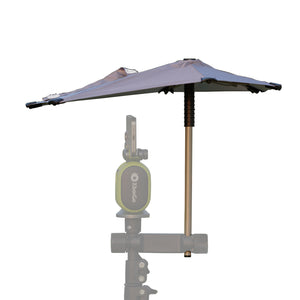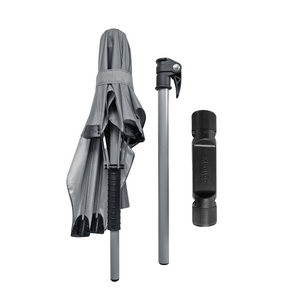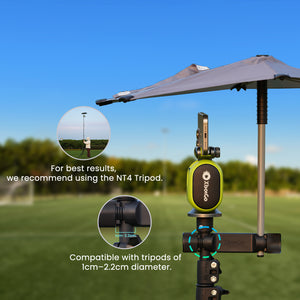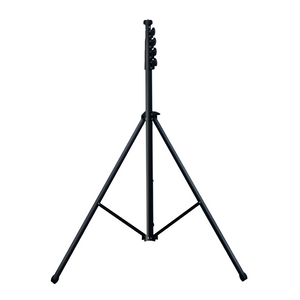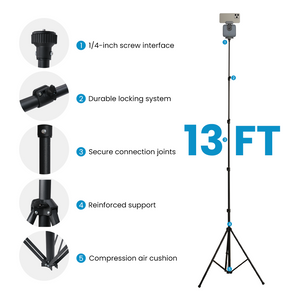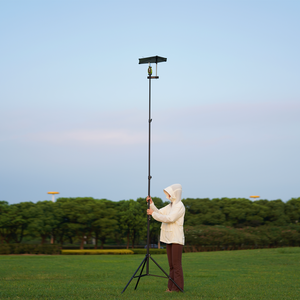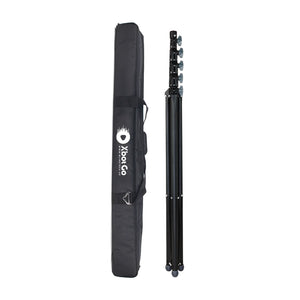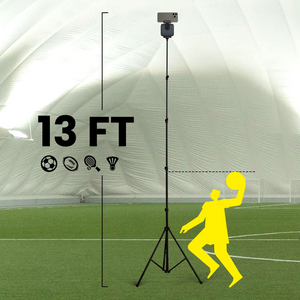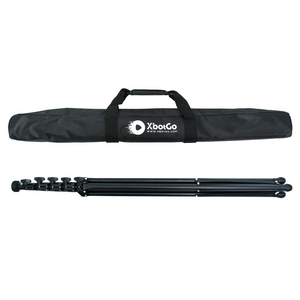XbotGo Chameleon AI Sports Camera
Striker in Soccer: Top Skills, Tips & Tactics
It's the 89th minute, scores are level, and the ball drops to the striker just outside the penalty area. In that split second, years of training, countless hours of practice, and raw instinct converge into a single moment. The striker's decision—to shoot, pass, or dribble—could determine the outcome of the entire match.
This is the reality of playing striker in soccer, a position that demands not just the ability to score goals, but a complex blend of technical skill, tactical intelligence, and mental fortitude. While many young players dream of wearing the number 9 jersey and celebrating in front of roaring crowds, few understand the intricate demands of mastering this pivotal role.
The Evolution of the Modern Striker
Gone are the days when strikers could simply wait in the penalty box for scoring opportunities. Today's game demands versatility, intelligence, and a willingness to contribute to all phases of play. The traditional "target man" has evolved into a multifaceted player who must excel in numerous areas.
Modern strikers serve as the spearhead of their team's attack, but their responsibilities extend far beyond putting the ball in the net. They're expected to initiate defensive pressing, create space for teammates through intelligent movement, and link play between midfield and attack. This evolution reflects soccer's tactical advancement, where fluid, interchangeable systems have replaced rigid positional play.
The best strikers today—think of players like Erling Haaland, Karim Benzema, or Sam Kerr—demonstrate remarkable versatility. They can drop deep to collect the ball, drift wide to create overloads, or make penetrating runs behind the defense. This adaptability makes them unpredictable and nearly impossible to defend against.
Essential Technical Skills Every Striker Must Master
The Art of Clinical Finishing
At its core, striking is about scoring goals, and clinical finishing separates good strikers from great ones. But finishing isn't just about power—it's about technique, timing, and decision-making.
Elite strikers understand that different situations call for different finishing techniques. A first-time shot requires different preparation than a controlled finish. Placement often trumps power, especially when facing an advancing goalkeeper. The inside of the foot provides accuracy for near-post finishes, while the laces generate power for long-range efforts.
Practice makes perfect, but purposeful practice makes champions. Successful strikers dedicate hours to finishing drills from various angles and distances. They work on both feet, understanding that one-footed players become predictable and easier to defend. They practice under pressure, simulating match conditions where split-second decisions determine success or failure.
Movement: The Invisible Skill
While finishing grabs headlines, intelligent movement often proves more valuable. The best strikers are constantly in motion, even when they appear to be standing still. They're scanning the field, identifying spaces, and timing their runs to perfection.
The concept of "between the lines" positioning revolutionizes how modern strikers operate. By finding pockets of space between defensive and midfield lines, strikers force opponents into difficult decisions. Should they mark tightly and risk leaving gaps elsewhere, or maintain their shape and allow the striker time on the ball?
Curved runs have become increasingly sophisticated in modern soccer. Rather than simply sprinting in straight lines, intelligent strikers use curved patterns to stay on defenders' blind sides. They understand that the best position isn't always the most obvious one—sometimes creating space for others proves more valuable than occupying it yourself.
Hold-Up Play and Link-Up Ability
Physical battles with defenders remain inevitable, making hold-up play a crucial skill. This involves more than just strength—it requires technique, balance, and intelligence. Elite strikers use their body as a shield, protecting the ball while scanning for teammates making supporting runs.
The timing of when to hold and when to release the ball separates average strikers from exceptional ones. Hold too long, and the defense recovers; release too early, and the attack loses momentum. The best strikers develop an internal clock, knowing instinctively when to turn, when to lay off, and when to play teammates through on goal.
Physical and Mental Attributes of Elite Strikers
Speed vs. Intelligence: The Modern Balance
While pace remains valuable, acceleration often matters more than top speed. The ability to explode over the first five yards creates separation in tight spaces where most goals are scored. Quick changes of direction, combined with body feints and subtle movements, help strikers gain crucial advantages.
However, many successful strikers prove that intelligence can compensate for physical limitations. Players who lack explosive pace succeed through superior positioning, timing, and anticipation. They arrive in dangerous areas not because they're fastest, but because they read the game better than their opponents.
The Mental Game: Confidence Under Pressure
The psychological demands on strikers exceed those of any other position. Missing chances is inevitable—even the world's best strikers convert only about 20-30% of their opportunities. The key lies in maintaining confidence despite setbacks.
Mental resilience manifests in various ways. It's the striker who misses an early chance but continues making aggressive runs. It's the player who maintains composure in one-on-one situations despite recent failures. This unwavering self-belief often proves the difference between good players and great ones.
Visualization techniques help many strikers maintain confidence. By mentally rehearsing different scenarios—finishing from various angles, beating specific defenders, scoring in crucial moments—players prepare their minds for success before stepping onto the field.
Tactical Intelligence and Game Understanding
Reading the Opposition
Elite strikers study their opponents meticulously. They identify which defenders struggle with pace, who's weak in the air, and which center-back tends to lose concentration late in matches. This intelligence gathering enables tactical advantages that pure athleticism cannot provide.
Against high defensive lines, timing becomes paramount. Strikers must perfect the art of staying onside while maximizing their advantage when breaking through. Against deep-lying defenses, movement within the penalty area and quick combinations with teammates become more important than runs in behind.
Creating Space and Opportunities
The best strikers understand that goals often result from collective movement rather than individual brilliance. By dragging defenders out of position, strikers create space for teammates to exploit. A well-timed run toward the near post might not result in receiving the ball, but it could open space at the far post for a teammate.
This selfless aspect of striker play requires tactical maturity. Sometimes the most valuable contribution involves occupying defenders without touching the ball, creating numerical advantages elsewhere on the field. Great strikers make their teammates better simply through intelligent movement.
Training Methods for Striker Development
Individual Skill Development
Striker development requires dedicated individual training beyond team sessions. Finishing practice should replicate match situations—shooting under pressure, from different angles, with various techniques. Working with rebounders or training partners helps simulate the quick decisions required during games.
Movement training without the ball proves equally crucial. Setting up mannequins or cones to represent defenders helps strikers practice different types of runs. This develops the muscle memory needed to execute complex movements instinctively during matches.
Small-Sided Games and Adaptability
Small-sided games present unique challenges that accelerate striker development. With less space and fewer players, decision-making must be quicker, and movement patterns more frequent. These constraints force creativity and adaptability—essential qualities for modern strikers.
In 7-a-side formats, strikers often function more as facilitators than pure finishers. They must contribute to build-up play, create opportunities for others, and still maintain their scoring threat. This versatility translates directly to improved performance in full-sided matches.
Conclusion
To master the striker position, you need more than just goal-scoring ability. Great strikers combine sharp technical skills, intelligent movement, mental resilience, and tactical awareness to impact every match. By continuously practicing finishing, improving your off-the-ball runs, and staying confident, you’ll not only find the back of the net more often but also elevate your overall play. Embrace the challenges, keep learning, and enjoy leading the attack—every game is an opportunity to become a better striker.
XbotGo Chameleon AI Sports Camera
Capture every moment with AI-powered tracking. Perfect for coaches, parents, and athletes who want seamless footage without manual filming.








 Soccer
Soccer Basketball
Basketball Ice Hockey
Ice Hockey Football
Football Handball
Handball










